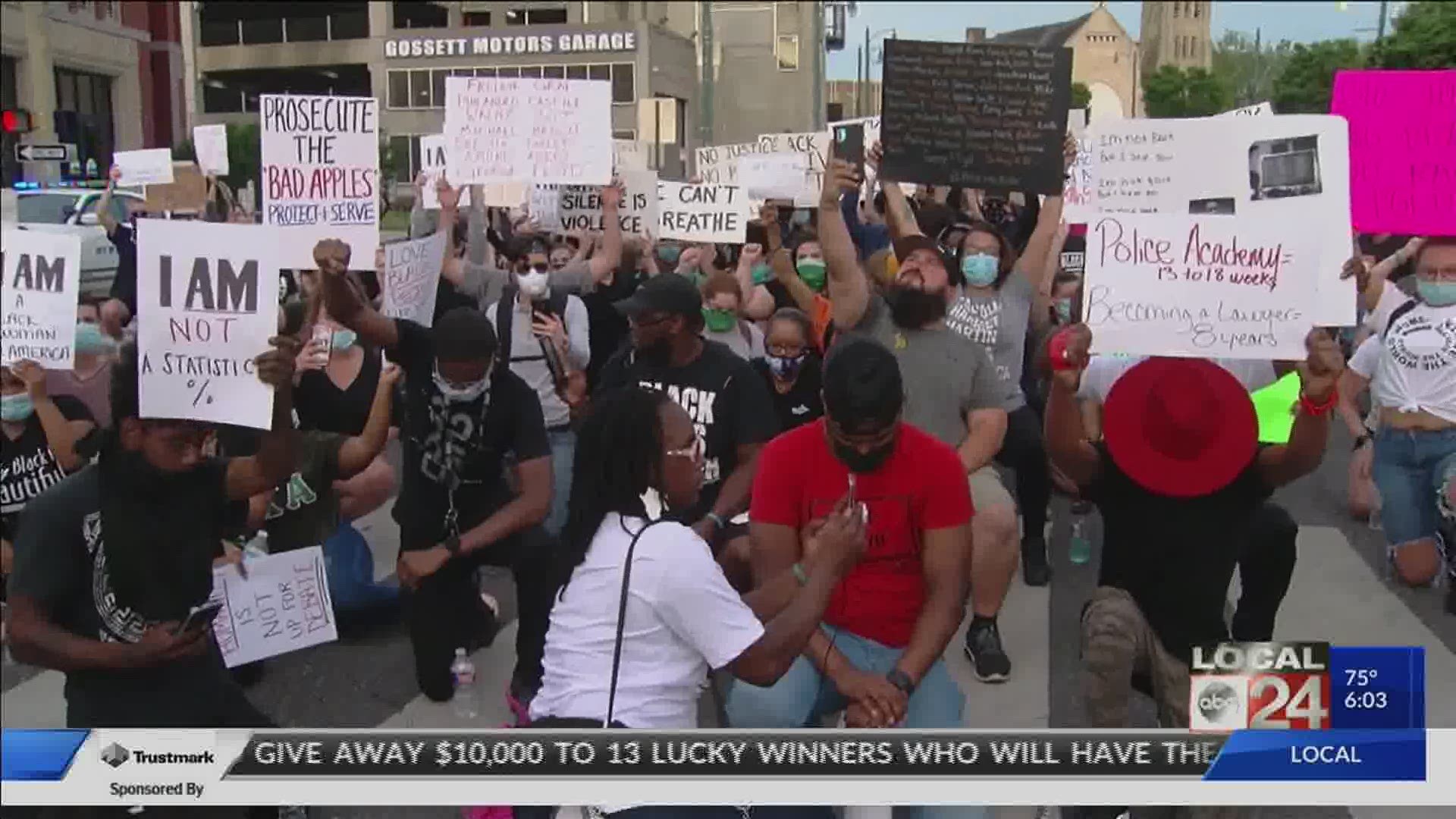MEMPHIS, Tenn. — As protests continue, so does the concern about the spread of COVID-19, but some health experts say protesting, when done in a safe way, is something they support because of how COVID-19 is affecting African American people.
For seven straight nights, hundreds of people, masked and unmasked, have marched the streets of Memphis fighting for equality and an end to police brutality following the murder of George Floyd by an officer.
"The protests like anything else, bring forward an increase risk of COVID. There's simply no question about that. The good news is they've largely been outside and we know that the risk of catching COVID is less outside, it's clearly not zero," Dr. Scott Strome, UTHSC Executive Dean, said.
Dr. Strome says protesting, when safe and nonviolently, even with the COVID-19 risk, is something he supports.
"COVID is a manifestation of the broader broken status quo," he said.
It is a fact that COVID disproportionately affects black people. The group has the highest death rates from the disease.
Dr. Strome says in this moment we're not only fighting COVID-19 but the systemic oppression and racism black people have long faced that ultimately made them more at-risk.
"George Floyd is a symbol of the broader problem of the structural racism that exists in our society. It's folks who have limited access to healthcare, folks who have limited access to education," he said.
As protests continue, he urges people to wear masks and stay six feet apart.
The impact of how much the disease has spread following the protests won't likely come to light until two to three weeks after they began, Dr. Strome said.
On Friday, a "White Coats for Black Lives" protest will be held on the UT campus at noon at the Coleman Center Building.

